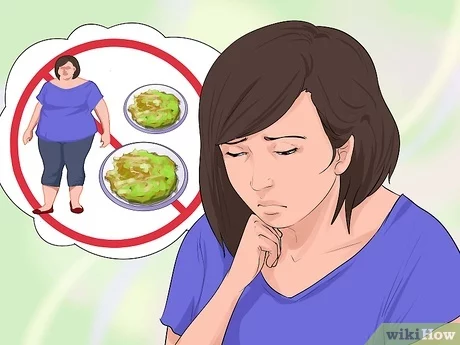As we come out of the back of the pandemic, we’re seeing the pressure on eating disorder service provision triple. This is particularly true of body image, security and self-esteem with social media fuelling negative body image and eating disorders. Disordered eating is a serious health concern but currently there is little provision for it and if untreated can develop into a full-blown eating disorder. In adults this can be very difficult to treat but early intervention with sensible nutritional advice and psychotherapy could prevent more serious conditions such as anorexia nervosa, binge eating disorder or bulimia.
Eating disorders and Disordered eating – what it is it?
An eating disorder is a mental health illness that can affect both men and women. When the idea of eating, food, exercise, and weight becomes an obsessive concept in your life, an eating disorder can arise. They can be thought of as any abnormal pattern of eating such as irregular, erratic, and inconsistent eating that causes significant disruption to daily life. The obsession with food or dieting can cause extreme damage to an individual’s emotional, physical, and social wellbeing. While there are different types of eating disorders that present different symptoms, the focus is always an unhealthy preoccupation with body shape, body weight, food, or exercise.
We speak of a disordered eating (DE) when we have a variety of abnormal eating behaviours that do not warrant a diagnosis of an eating disorder. Some of those behaviours could be:
- Abnormal eating patterns, rigid rituals and routines around food and exercise
- ‘yo-yo dieting’
- Pre-occupation with food and body image that negatively impacts on quality of life.
- Feelings of guilt/shame associated with food.
- Noticeable and sudden changes in weight
Lack of services for DE Treatment
While in and of itself disordered eating (DE) is not a diagnosis is it becoming more and more prevalent, but there is currently a gap in the provision for people impacted by DE. Social media tells women (but also men) how they should look, what they should eat and how they should exercise, and it negatively impacts their self-esteem, which is driven by two areas of your wellbeing: physical and mental. There is a great deal of inconsistent information around what good likes, for example with food and calorie deficit, reducing carbs, intermittent fasting and the benefits of a vegan diet and numerous conflicting images that we are bombarded with around exercise. This has resulted in a whole new eating disorder called orthorexia, an unhealthy focus on eating in a healthy way.
Human nature is to seek validation, connection, social acceptance, the characteristics of DE could be measured by the amount of your headspace you give up to worrying about what you weigh, what you eat, your body image. People may avoid social situations because they feel like they don’t look right, or they may avoid photographs of themselves. They may also engage in ‘fad’ diets where they remove whole food groups from their diets.
Consultant Psychiatrist Dr Suzana Corciova from Orchestrate Health specialises in Eating Disorders and Body Image, she comments: “In our everyday lives everyone around us is telling us how we should look, dress and act and for many that pressure has taken over causing a detrimental impact on both physical and mental health. We need to support and allow ourselves to be ‘not perfect’. In a society where a disordered eating is exponentially increasing and is normalised, the difference between an eating disorder and disordered eating can be very muddled and becomes even more important to recognize these difficulties early and address them.”
DE doesn’t discriminate and can often affect highly successful people who feel as though they need to be perfect. In fact, in teenagers and young adults there is a direct link with high achievement and eating disorders because they can’t bear to fall short of their own expectation of themselves. The team at Orchestrate Health, London’s leading private community mental health service have seen this in many clients who may have reputation, public profile, family expectation pressures that can lead them to have a disordered approach to eating. They help patients identify this early and find a resolution before any further ED develops.
The Link Between Mental Health and Eating Disorders
Eating disorders are serious, life-threatening, medical conditions. Many aspects such as genetics, childhood, social pressures, bullying, challenges with relationships, abuse, trauma, poor body image, and stress can all play a role. Eating disorders go beyond an unhealthy relationship with food. Many people that struggle with an eating disorder also suffer from depression, anxiety, chronic stress, or some other form of mental illness. For some individuals, the pain and distress they feel deep down inside can cause them to develop an eating disorder as an attempt to deal with their underlying emotional and psychological problems. They can’t control the external factors such as family trauma, abuse, expectation, or solve their feelings of isolation, sadness, and loneliness but they can control what they eat which in some cases make them feel more empowered.
A healthy relationship with food is at the core of both psychological and physical wellbeing. Since primary school, we are taught the basics of a proper diet and nutrition: load your plate with colourful fruits and veggies, cut down on sugar, and seek out some form of dairy every day to ensure you have all the vitamins and minerals your growing body needs. So, what happens when your relationship with food isn’t quite as simple as it used to be? When the idea of food is distorted into anything other than fuel for our needs, dangerous behaviours can arise. However, eating disorders are more than an aversion to food – they go much deeper, beyond what anyone on the outside can see.
If you are questioning your eating habits, ask yourself the following:
- Am I preoccupied with being thinner?
- Am I afraid of gaining weight?
- Do I feel out of control around food?
- Do I feel guilty or ashamed for eating food?
- Do I obsess over my weight?
- Do I vomit after meals?
- Do I restrict food from myself?
- Am I tempted to remove whole food groups from my diet?
- Have others commented on my eating habits?
If you said yes to more than one of these questions, you might be struggling with disordered eating or an eating disorder. The good news? Eating disorders have been treated and overcome by thousands of men and women over time. Recovering from an eating disorder is a journey, so be patient with yourself. However, the willpower it takes you to fall into an eating disorder is the same willpower you can harness to get out. If you are questioning your eating patterns, or you suspect someone you love has an eating disorder now’s the time to reach out for help.
Orchestrate Health is London’s leading private community mental health service supporting patients and enabling them to be cared for online and/or at home by providing live-in mental health specialists, home assessments and daily visits from professionals within the mental health field. Orchestrate Health can provide help for those struggling with an eating disorder and remove the inconvenience of travelling to and from appointments.
Help keep news FREE for our readers
Supporting your local community newspaper/online news outlet is crucial now more than ever. If you believe in independent journalism, then consider making a valuable contribution by making a one-time or monthly donation. We operate in rural areas where providing unbiased news can be challenging. Read More About Supporting The West Wales Chronicle
























